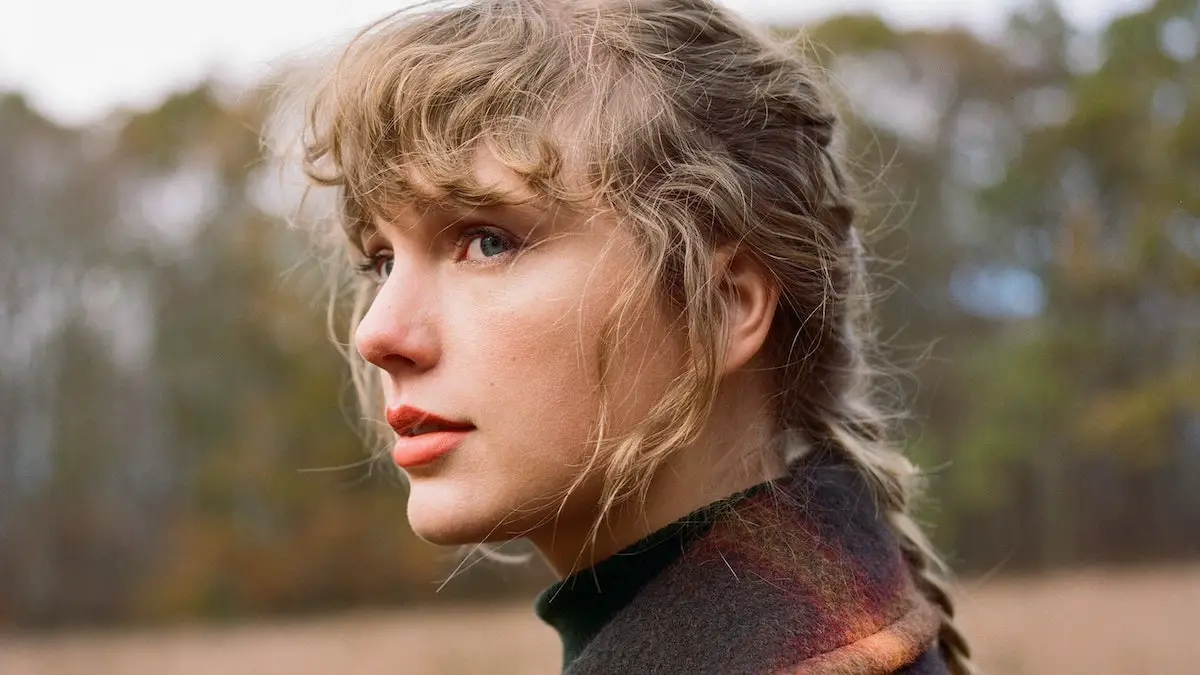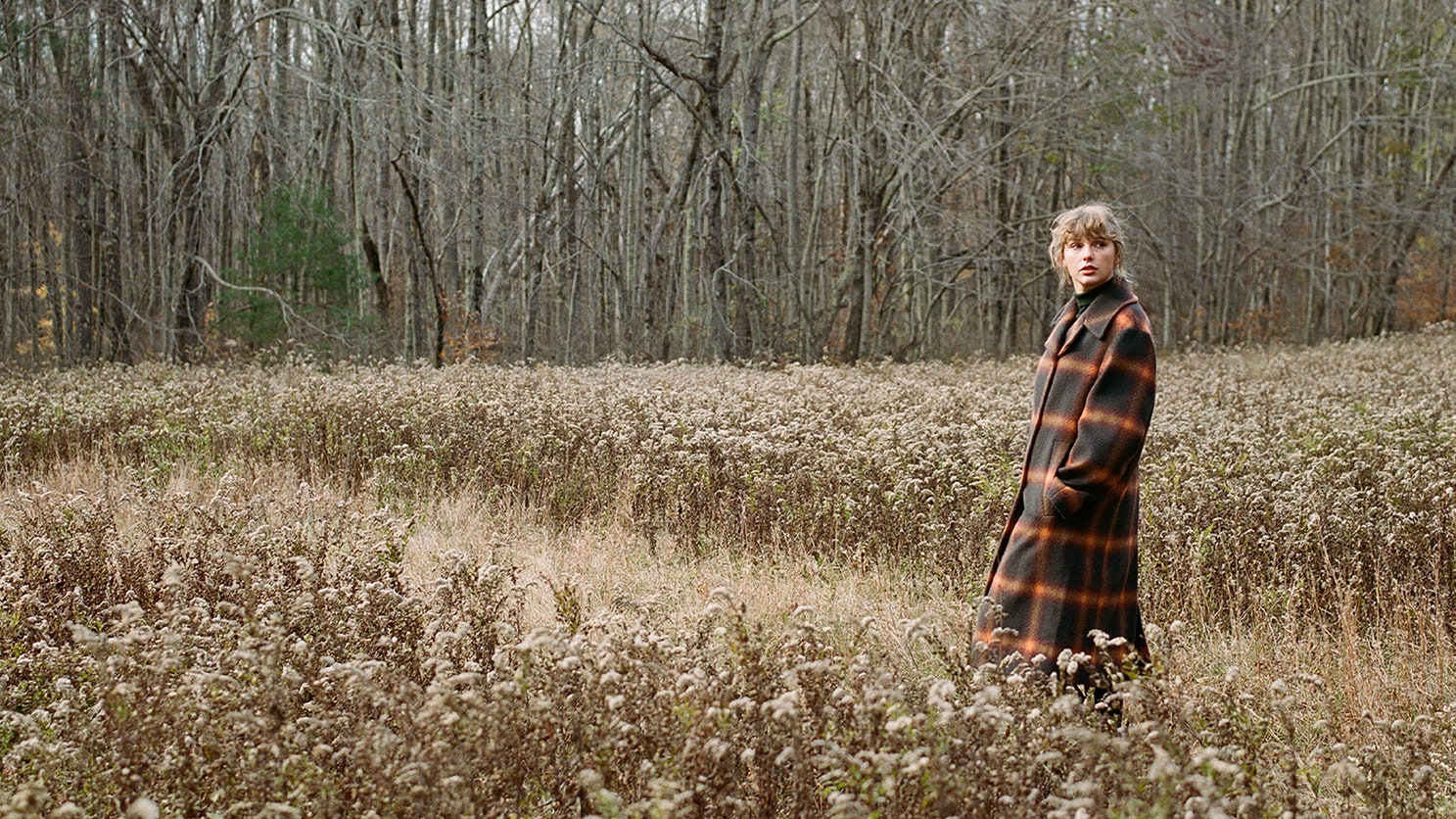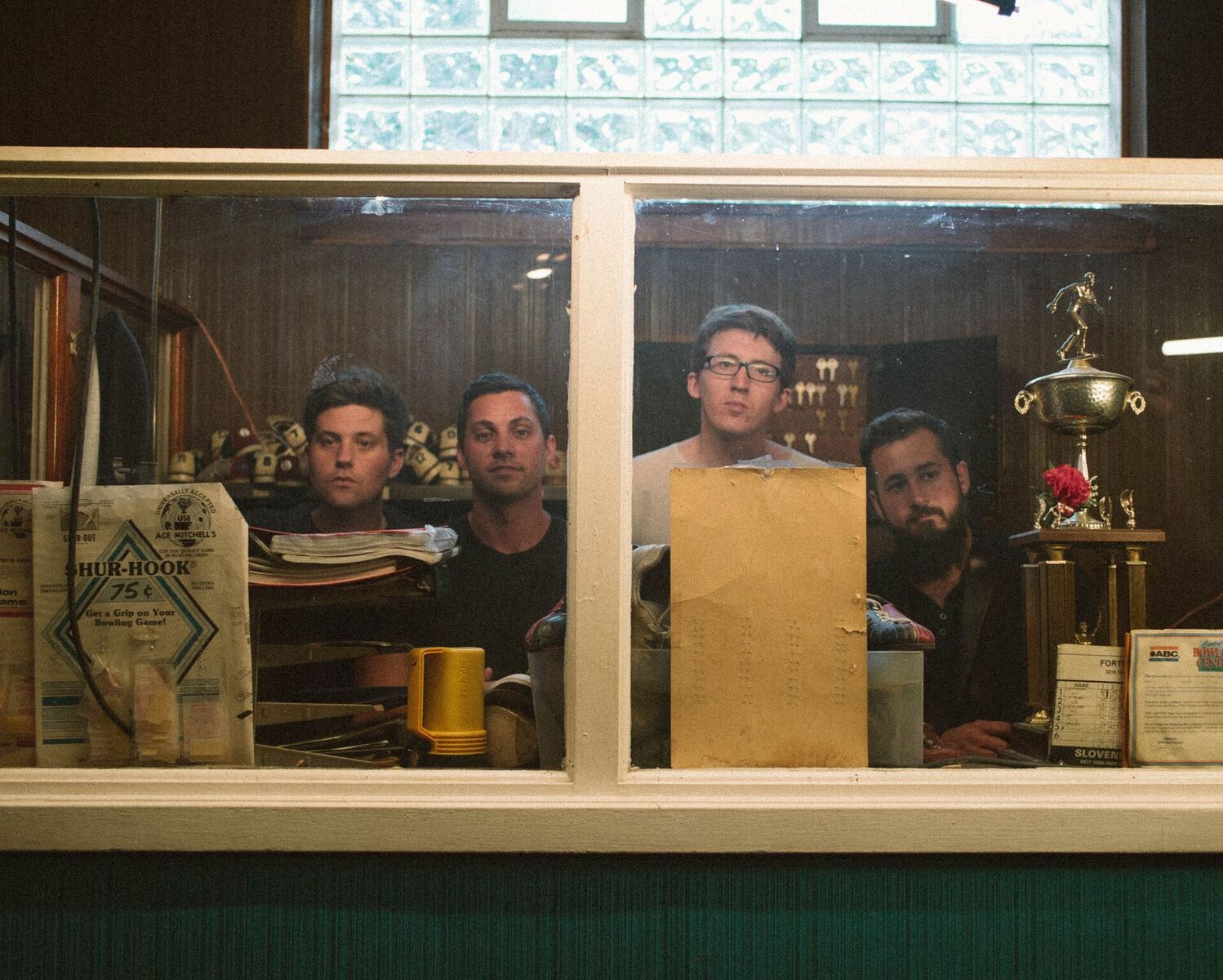Atwood Magazine’s writers discuss Taylor Swift’s surprise ninth LP ‘evermore’, the sister album to ‘folklore’ and a comforting record of life lessons and release with its own colors, textures, stories, and dimensions.
Featured here are Atwood writers Emily Algar, Madison Zoey Vettorino, Francesca Rose, Josh Weiner, Lowndes Commander, Nina Schaarschmidt, and Lexi Lane.

— —
What were your initial thoughts and feelings about evermore, compared to folklore? Have these changed or stayed the same since your first listen?
Emily: Definitely changed. I don’t know how you can know how you feel about an album from first listen, especially an album as long or as lyrically rich as evermore. However, the one thing that has stayed constant is my love of ‘champagne problems’. It is definitely my new ‘All Too Well’.
My initial thoughts were that evermore was too lyrical and that there wasn’t room to just sit and let the songs wash over you; folklore has a lot more space and ambience, which I really like. I also thought there was too much restraint on some of the songs like ‘no body, no crime’ or ‘happiness’, and I found myself skipping a lot of the songs, something I didn’t do with folklore. I think the only Swift album I loved on first listen was Lover and RED.
But now, I absolutely love the album, save a couple of tracks. Swift just feels so much more comfortable. If folklore was an experiment to see if she could write outside of her experiences, then evermore is her doing so but with the added dimension of bringing her own feelings to the table and stitching them into each character.
Lowndes: Initially, I didn’t like evermore quite as much as folklore. Upon first listen of folklore, tracks like “mirrorball,” “august,” and “peace” stood out to me and felt special instantly, whereas I experienced less of that when hearing evermore for the first time. But, with each listen I’ve grown to like evermore more and more. Both albums feel like they take place in the same setting, yet evermore sounds more like an album set at nighttime, whereas folklore sounds more like sunrise.
Madison: Have you ever listened to an album for the first time and instantaneously knew it would be on repeat over and over and over again? Both Lover’ and ‘folklore fell into that category for me – as does much of Swift’s music – but truthfully, ‘evermore’ didn’t. That’s not to say I didn’t like it at first listen, because I did! But it took me a few more tries to feel a connection to evermore. My feelings about folklore have evolved significantly since my first listen, and I anticipate that will happen with evermore too. The more I listen, the more I draw little connections to lyrics and put the pieces together – that’s something I always look for when listening to Taylor’s music, because I think she’s so talented at leaving fans with little clues throughout the tracks about what/who they’re about. (And yes, I think that still applies to evermore, an album that is largely fictitious.)
Nina: When I first listened to the album, I felt really intrigued about the songs and the storyline she tries to tell with the tracks. There were a couple of tracks that stood instantly out to me, like “Marjorie”. Lyrically, I think it is brilliant, but it does take some time to fully understand all she is talking about (there was even a meme going around the internet that you need a dictionary to fully understand everything haha). I really like that in this album, like in folklore, the songs are predominantly written out of a fictional rather than an autobiographical perspective, which makes the record all round more interesting and diverse.
Francesca: Although I did keep listening to folklore from its release date and did enjoy it, I couldn’t really take it seriously at first. The whole diving into the folk aesthetic annoyed me a little when there are so many artists who have always had this as their authentic identity and then Swift does it suddenly it’s regarded as an ‘indie folk classic.’ I came to realize though that it’s more just an appreciation of so-called genres and approaches to music/songwriting and that it’s boring if artists (especially renowned ones) stick to the same thing. With this in mind, I went into evermore knowing what to expect and embraced it a lot more.
Lexi: I feel like when I went to listen to evermore, I already was holding folklore close to my heart as an album. Since the first time playing it, different songs — and more of evermore in its entirety — have grown a lot on me. I believe evermore was able to have stronger lyricism, given Swift was already on a roll, but folklore is the more cohesive album of the two.
Josh: I like all of Taylor Swift’s albums, so I was pretty certain that I would enjoy evermore as well. But given that it came out only five months after folklore, I wasn’t sure it would be the standout achievement that Red and 1989 were, since those were both the products of two years of intense and prolonged craftsmanship. I figured this record that would be more remembered for the way in which it was released– “Two albums in five months! Crazy! What great use of COVID time!”– rather than it being my absolute favorite T-Swizzle record.
But whaddya know: it turns out that her two surprise releases from 2020 are the two most highly acclaimed albums of her entire career, according to Metacritic. So I guess that the formula that Swift has got down now is simply as effective as ever, no matter how much or little time it actually takes her for her to work with that formula in the studio and emerge with a new album.
In what ways does evermore reflect 2020, if any?
Emily: The one word I would use to describe evermore is ‘almosts’, which is what this year has been. 2020 has been a year of almosts, from relationships to friendships to professional opportunities. People almost got married, almost had children, almost bought houses, almost had that experience they had been waiting a lifetime for, but because of the pandemic and political decisions by our leaders, all these things came crashing down.
I hadn’t actually thought about the lyrics from evermore and how, or even if, they reflected 2020 but now thinking about I think, the line from “‘tis the damn season”, “And the road not taken looks real good now” and the line from “happiness”, “In our history, across our great divide/ There is a glorious sunrise”. The former because none of us got to take the roads we set out to this year, and because of that, all of those roads not taken feel like they’d be so much better than where we are right now; and the latter, because in spite of all the history, all the division, all the hurt across the world, with each new day there is a glorious sunrise, and with that, comes hope.
Madison: I keep thinking about (the song) “evermore,” and how during the first chorus of the song she sings, “I had a feeling so peculiar // That this pain would be for // Evermore.” I think that’s a feeling so many of us have had at points this year; this question of, “Will the pain ever go away? Will it endure forever?” By the end of “evermore,” the lyric changes to, “I had a feeling so peculiar // This pain wouldn’t be for // Evermore.” That transition is, I think, really beautiful. It affirms that while we’re in the middle of pain it feels endless, but there will be an end to it, things will get better. There’s talk of the pandemic turning a corner now that the vaccine is being distributed, and obviously, the calamity that was 2020 is coming to an end and a new year is about to arrive. It feels very purposeful that Swift ended the track on this note of optimism, and it feels like a really timely hope with what’s going on in the world right now.
Francesca: To me, evermore and folklore both reflect 2020 in the way that the whole folky, cabin in the woods aesthetic is tapping into that need of nature that’s been felt with the quarantine. Also there’s a large fictitious quality to the songwriting and so the overall effect is like delving into the worlds in a fairytale style novel- appropriate given a lot of people have probably been spending more time with their heads in books this year.
Lyrically I didn’t really delve too much into it but I agree with Emily that “’tis the damn season” and that line ‘And the road not taken looks real good now’ instantly came to mind if having to place in the context of 2020.
Josh: Everyone’s commentary here seems to be quite on point. There aren’t explicit references to the viruses and protests that characterized 2020, but the general feeling of having gone through a year of confinement and limitations, and now having reasons for emerging optimism, is conveyed in its own special way all across evermore.

Does evermore feel like a companion piece to folklore, or is it a very different album? Or is it either one, depending on the moment?
Emily: I know Swift has said this is the sister album to folklore and I have seen variations of this analysis in different reviews, but to me it merely feels like the next link in the chain, the next step on the songwriting staircase for Swift. Yes, it sticks with the same storytelling and understated arrangements/production (at times) but it is also very different to folklore and most definitely its own world. Even aesthetically: folklore felt very contemporary and set in the last days of summer, where as evermore and its characters feel like they come from a bygone age, the 1920s or 1930s, and all set in that time just before Christmas/New Year where we all wish for good things but those wishes rarely come true.
Lowndes: As the two albums are part of the same “era,” I think they serve as companion pieces to each other. The songs were written during the same year with the same collaborators, so the sense of cohesiveness is undeniable. Yet, the time frame of the albums feel different: like folklore sounds like late summer, and evermore sounds like midwinter– the seasons in which they were respectively released. evermore is almost like the continuation of the story.
Madison: To me, folklore had a levity to it that evermore does not. folklore felt like the embodiment of naiveté, evermore feels more jaded. folklore definitely feels like evermore’s predecessor to me. evermore almost felt like a breakup album at points, whereas folklore largely felt like an album about falling in love. I think they tell stories about the same world, but those stories don’t feel separated by months, to me. They feel separated by years.
Nina: To me, folklore feels like a mature sister to evermore. If Folklore would be a person, they would be in their mid-twenties, whereas evermore would just be at the end of teenagehood. Evermore feels more stuck in daydreams, getting over potential scenarios, whilst folklore is very real, lyric wise. Comparing them is harder than I thought, they do feel very similar but also very different in the same way.
Francesca: It’s probably true that folklore holds more prominence than evermore but for sure they are companions. Swift’s albums, particularly in later years, encompass a different phase/ chapter in her career. evermore and folklore are therefore the current Taylor Swift and mark this period of time well. Chances are her next project will be in a different direction.
Josh: Well, given that it came out the same year as folklore and features much of the same production team, it’s fair to say that evermore is cut from the same cloth as its predecessor in many ways. But for reasons that might take me awhile to lay my finger on, I also feel like there are some key differences between them: perhaps evermore is somewhat more upbeat? Listening to them back-to-back might help me to refine my answer a bit more.
Keeping in mind that Swift describes evermore as a companion piece to folklore, and considering folklore’s success, do you think the release of evermore was necessary? How do you think it complements the storytelling of folklore and of Swift in general?
Lowndes: I don’t think it was necessary for fans per se, but it was surely one more exciting release to add to 2020. But it likely felt like a necessary release to Swift and her team, as they always seem to have well-orchestrated plans when it comes to releases. Yet, Swift excels when it comes to storytelling through her songwriting, and with each listen, I think evermore complements folklore really well. Almost like evermore offers a different perspective of the world created in folklore.
Emily: I wouldn’t say it was necessary in the sense that it completes folklore or that folklore would not make sense without evermore or vice versa. For me, both are stand alone albums but at the same time, evermore just feels like the next step on the staircase for Swift. However, it probably did feel necessary for Swift to release it if she was still writing after folklore was released. In terms of storytelling, I would say that folklore was more inward looking and introspective, even when other characters or stories made an appearance, whereas evermore feels like it is looking out and watching others through your own experiences.
Nina: I would not say that it was necessary per se, but it was like folklore, a wonderful surprise for the fans. Since it is a very dreamy record, it fuels escapism fantasies, that we all, now more than ever at the end of this year need. Since they are both different in complimentary ways, I would not say that evermore would ruin folklore’s success. In terms of storytelling, I feel like Swift did a great job on this record, since the stories became more fictional and vivid.
Francescs: I think it’s testament to her creativity and how much control she has in regards to the Taylor Swift ‘brand’. She explained on her Instagram that folklore gave her two options: ‘to turn and go back or to travel further into the forest of this music’ and, as a result, ‘We chose to wander deeper in. I’ve never done this before. In the past I’ve always treated albums as one-off eras and moved onto planning the next one after an album was released. There was something different with folklore.’ For that reason, I feel like evermore was necessary for Swift.
Lexi: Absolutely. I believe since exiting her former record label deal, her true artistry and intentions have been able to shine through. There’s a part in a recent interview she did, where she described no longer wanting to stick to a “Okay, I need a radio single, one for kids, one for [insert emotion here]..” type of formula from a record business perspective — noticeable throughout her discography up until folklore and evermore. She set aside the need for pleasing everyone, and allowed herself to create freely as a 31-year-old singer-songwriter. The maturity and growth is so much stronger within these two albums.
Josh: That’s a pretty loaded question! Who knows if it was “necessary” or not, but I’m definitely glad that it came out! I’ll take another 15 strong tracks from one of our generation’s finest and most consistent songstresses any day.

In spite of evermore being more about characters than Taylor herself, do you find the album just as personal as, say, RED, or do you think there is more a distance to it like 1989?
Emily: It’s funny because there was definitely a love/hate relationship when I first listened to folklore. I immediately loved it but then we grew apart for a while until I watched The Long Pond Sessions and realised how sad and intricate and personal it really is. Before watching, I was finding I was relating to it the same way I relate to 1989: I found the detachment from Swift’s usual personal storytelling difficult to connect to. However, with evermore, it feels like she has struck the right balance between imaginary stories and weaving her own experiences and emotions into those stories. You can hear her passion, sadness, heartbreak, lust etc. more clearly in these songs than the songs on folklore, even if they aren’t about her. I actually liken this album to RED in its diversity, sadness and how much I really do like it.
Madison: I think part of the reason I didn’t feel as immediate of a connection to this album was because some of the songs didn’t feel as personal as some of her other tracks that I adore. The more I listened to them, the more I realized that they were, it was just hidden a little below the surface. I admire that, but I think I prefer Swift’s more directly personal songs. (Like ‘Cornelia Street.’)
Which song or songs stand out to you as evermore’s highlights?
Emily: “champagne problems” hands down. I could listen to it on repeat for days. Also, “tolerate it”, ”cowboy like me”, and “happiness”.
Lowndes: If I had to pick two, I’d say 1: “‘tis the damn season,” for how well it captures the feeling of returning to your hometown (or even your old life) for the holidays. And 2: “coney island.” Swift’s voice melds so well with Matt Berninger’s, and it felt like one of the most personal songs on the record.
Madison: I’m going to say ‘long story short’ is my number one favorite. It feels like a matured ‘Story of Us’ where things go right instead of wrong. It has the same upbeat pacing, and it seems to be one of the more personal songs on evermore. My second favorite is ‘champagne problems.’ The lyrics are so intimate and specific, it feels like I know the person she’s singing about personally. Finally, I’ll round out my top three favorites with ‘tis the damn season.’ She really pinpointed how bittersweet the holidays can be at times, and how it feels to see the place you grew up – and the people you grew up with – living their life without you while you’re off living a new life.
Nina: My clear favourite, which has also been on repeat since, is “Marjorie”, a tribute track to her grandmother, whom Swift lost when she was a young teenager. It deals with the problematic of losing someone at a young age so delicate, expressing the regret that one didn’t have the chance to get to know each other more. Moreover, I loved “Happiness”, another brilliant song, capturing heartbreak and its mixed feelings at its finest. Another favourite of mine was also “tis is the damn season”, since we all know that feeling we get when we return to our hometowns, contemplating about the road not taken.
Francesca: The songs that were instantly memorable, for me, and played again and again were “willow,” “gold rush,” and “no body, no crime.” Also I’m with Madison too with “long story short”; I love the way the lyrics flow in the chorus. “no body, no crime” is great because it’s just fun, especially with the involvement of Este Haim. The track reminds me of “Goodbye Earl” by The Chicks, both being playful takes on a crime tale. “Willow” is really pretty and “gold rush” got a hold of me sonically. It’s full of surprising changes, elevations and dips, franticness and magical auras.
Lexi: I’m going to also agree with everyone that “champagne problems” is one of her best. That bridge is incredible. My second favorite is “dorothea,” which really grew on me with each new listen.
Josh: Thus far, my favorite songs here are “willow,” “champagne problems” and “tis the damn season.” We’ll see what wins out in the long run.
What lyrics stand out to you in this album, and why?
Emily: “champagne problems” – “How evergreen, our group of friends/ Don’t think we’ll say that word again”
I chose this lyric because it perfectly sums up the split-second switch from naivete and idealism to jadedness and cynicism, a switch that you can’t ever flip back.
“cowboy like me: – “With your boots beneath my bed/ Forever is the sweetest con”
This line is so gently reassuring, utterly sensuous and beautifully melancholic. It perfectly captures that moment where vulnerability and bravery come together, with the two characters choosing to love one another despite the ephemerality of forever.
“tolerate it” – “I made you my temple, my mural, my sky/ Now I’m begging for footnotes in the story of your life”
The whole song is the ultimate track 5 and this line pretty much sums up that feeling of knowing that you love someone more than they love you. On my first listen, I was convinced this song was inspired by Du Maurier’s Rebecca, because of how much the two characters aligned with the older, more experienced Max de Winter and the younger, naive and almost childlike Mrs de Winter from the book. I also agree with Madison that this lyric conjures up so much imagery and is really heart wrenching because of that.
Lowndes: The lines at the end of the first verse of “happiness,” “And in the disbelief / I can’t face reinvention / I haven’t met the new me yet.” All at once, they convey the sense of pain as something ends, yet the assurance that there will in fact be a “new me.” The song as a whole is a hopeful one, a beautiful reflection of what once was and a bold look forward at what might be.
Madison: The first one that comes to mind is in ‘long story short’ – “Actually // I always felt I must look better in the rear view.” That’s kind of a zinger lyric, not to mention really introspective. My other favorite is in ‘tolerate it’ – like Emily, I think the “Now I’m begging for footnotes in the story of your life” lyric is absolutely a stand-out. Heartwrenching, for one, but also, I like how this lyric lends itself to imagery.
Nina: From “Marjorie” – I should’ve asked you questions/ I should’ve asked you how to be /Asked you to write it down for me /Should’ve kept every grocery store receipt /’Cause every scrap of you would be taken from me- those lyrics perfectly reflect for me the feeling of grief and reget after someone you loved died. It is brutally honest, but very true.
Francesca: As previously mentioned, I love the chorus of “long story short” (‘Cause I fell from the pedestal/Right down the rabbit hole/ Long story short, it was a bad time/ Pushed from the precipice/ Clung to the nearest lips/ Long story short, it was the wrong guy’) because of the rhymes and how they roll off the tongue. Also, I was listening to the recent Switched On Pop podcast episode about evermore and it was explained how there is a linguistic term called ‘the hinged figure’ for a trope in country music whereby a line has two similar words but the meanings go in different directions. “’tis the season” has this with ‘So we could call it even/ You could call me “babe” for the weekend’ and I found that really interesting. It’s probably not that relevant but it does tap into the whole playfulness of the songwriting and also goes back to her country roots.
Lexi: I think “It’s never too late to come back to my side / The stars in your eyes shined brighter in Tupelo” from “dorothea” is a really standout line to me. I’m a big fan of “gold rush” as well — partly for the way it reminds me of Little Women — but also for the allusions in lyrics like “My mind turns your life into folklore / I can’t dare to dream about you anymore” and the gentle imagery of “I see me padding ‘cross your wooden floor / With my Eagles t-shirt hanging from the door.”
Josh: A number of people in this roundtable have already commented on how the line “And the road not taken looks real good now” from the song “tis the damn season” is a thought-provoking one. I’ll join them in this sentiment, as well. Recalling the original poem from Robert Frost, the “road not taken” is synonymous with “the road less travelled,” and a symbol for individualism and nonconformity (as Robin Williams reminded us all in Dead Poets Society). It’s interesting to think about how Swift herself has managed to embrace those qualities, both in the context of the song and in her own life and career.
I also already expressed this in our folklore roundtable, but it’s still pretty jarring for me to hear the increased profanity we’re hearing in Taylor Swift songs. I think back to the cute and goofy-looking 19-year-old T-Swift of the “You Belong With Me” video, singing about how “She wears short skirts, I wear T-shirts.” Would I have ever thought that line would one day evolve to “She would’ve made such a lovely bride. What a shame she’s fucked in the head?!” Doubtful– but it’s enough to qualify such lines as “standout lyrics,” for sure.
What are your thoughts on the three collaborations featured on this album? How does each one (Haim, Bon Iver, and the National) contribute in their own way?
Emily: I really like the collaborations on the album, except for Bon Iver’s feature on the title track. Though I guess we should also include Marcus Mumford’s background vocals on ‘cowboy like me’ in this list. I think each collaboration adds a new dimension to the song. For instance, the collaboration with the National on ‘coney island’ adds a much needed male presence to the song. I really can’t imagine Swift singing this alone as it feels very much like back-and-forth between her and Berninger.
I am not really that familiar with Haim, so I am not sure what they add to the song “no body, no crime” but I feel like having a group of women being responsible for a revenge killing of man, really does make it more interesting than if it had just been Swift acting alone. I also think the subdued vocals from Swift and the Haim sisters really adds to this sense of quiet danger and vengeance that women do so well.
I find the collaboration with Bon Iver quite jarring and I am still not sure it adds anything to “evermore”, which is sad because I really like “exile”.
As for “cowboy like me”… I love this song so, so much, and like with “coney island”, having that warm male voice and energy behind Swift, even if it isn’t technically a duet, really makes the song that much richer and more beautiful.
Francesca: Bon Iver, The National, and Marcus Mumford feel predictable because of the mood of both folklore and evermore but their vocals totally work and it does give an additional dimension to the songs than if it was just Swift on her own. The narrative of “no body, no crime” becomes greater with the inclusion of Este Haim. It really sucks the listener in because it feels like a short story- obviously not true as opposed to having some underlying reference to an event in Swift’s personal life.
Josh: All three of these collabs are good. Personally, I think it’s crazy to listen to “Coney Island,” her duet with the National, and then to think about 2014’s “Welcome to New York.” Can you imagine two such profoundly different songs by the same artist, about the same city?
What are your thoughts on some of the more experimental/disjointed tracks from evermore such as “long story short,” “closure,” and “evermore”?
Emily: ‘long story short’ sounds a lot like the ‘New Romantics’ from 1989. I appreciate that album for being a good pop record but I don’t really like it, so this song feels a little out of place on evermore both sonically and lyrically, as it seems to rehash feelings that she dealt with on reputation and on Lover. I could have done without it to be honest.
The disjointedness and mechanical sounds makes sense on ‘closure’ as it Swift telling another person that she will never be a neat little problem that they can just tuck away, out of sight, out of mind. The instrumentation reflects this jarring of expectations. It reminds me a little of Fiona Apple, which is never a bad thing.
I am still having trouble with the title track, particularly Bon Iver’s feature. It feels very calming and evolving with just Swift singing over the piano but then Bon Iver comes in near the end and smashes the serenity that Swift has created. I guess I am just a little disappointed with the final two songs given how much I love folklore’s ‘peace’ and ‘hoax’, which still feels like perfect endpoints to the album. I am hoping, given that it’s only been a week, that ‘closure’ and ‘evermore’ will grow on me, and I will come to like ‘evermore’ as much as everyone else. Or I will fall in love with the two bonus tracks when I hear them!
Madison: ‘long story short’ would have fit in better on Lover, maybe, but it doesn’t feel out of place for evermore necessarily. I personally love ‘evermore’ – the song. The first time I heard it, I kind of skipped over. Then I went back and listened again, and realized how cathartic that song feels. Especially the point with Bon Iver. Before his bridge, the song feels really melancholy and hopeless. The bridge feels like this huge emotional release, and after, there’s a slight bit of optimism, but blossoms into something larger by the final lyrics. It took me a minute to appreciate this track, but now it’s probably in my top five. As for ‘closure,’ I love the letter imagery, and the lyric about tears and beers and candles, but I could do without the bitterness that’s infused throughout the whole track. There isn’t any bitterness throughout the rest of the album, I didn’t feel, so it was a little odd to inject it in the second to last track. But ending with ‘evermore’ definitely made up for it, to me.
How do you feel evermore fits into Taylor Swift’s greater discography?
Emily: I feel like reputation was a big turning point for Swift. Not because it is somehow sonically or lyrically different to her previous albums but because it (and also the Kimye shit storm of 2016) allowed her to stop putting rules and barriers around her and her music. Lover is the obvious result of this new found freedom with it’s sonically diverse tracks, indie feel and storytelling focus. I definitely think that folklore, and now evermore, are extensions of this new found freedom. I honestly believe on evermore that Swift has finally settled into herself and really doesn’t care about doing music the “right” way anymore or churning out radio friendly hits. It also feels like a return of sorts to her way of songwriting that you can hear on RED or Speak Now.
Madison: It’s another beautiful addition to the discography of Swift. Even though it wasn’t my favorite album she released this year (pretty wild to be able to say that, huh?!), evermore has a variety of absolutely gorgeous moments that I’m sure we’ll be still listening to long after this era is over.
Nina: I think, it was not a big turning point like reputation or folklore in her discography. I feel like it does go hand in hand with folklore and is one of the best records she has ever created.
Josh: With this record, Taylor Swift has demonstrated that just because an artist releases one album very quickly after the other doesn’t mean that they’re only vying for a boost in Spotify streams. Evermore is every bit as thoughtful and refined as any other album in her catalogue, even those that may have taken more time to fully finalize. It also proves that she’s still a powerful and ever-evolving performer with nine successful albums to her name.
What’s the one word that comes to mind after listening to evermore?
Emily: Almosts.
Lowndes: Turning point. That’s technically two words…but it felt right!
Madison: Release. This entire album feels like learning how to let go, surrender your plans, and let life work itself out.
Nina: magical
Francesca: Intriguing. Intriguing because the stature of Taylor Swift makes me interested in her music rather than having been a longtime dedicated fan and because I was skeptical about the whole folk thing with the release of folklore. But also I do take satisfaction in listening to most of Taylor Swift’s albums and the fact that I’ve been listening to evermore again and again and feel comfort in doing so is intriguing.
Lexi: Healing.
Josh: Remarkable.
– – – –

Connect with Taylor Swift on
Facebook, Instagram, Twitter
Discover new music on Atwood Magazine
? © Beth Garrabrant
evermore
an album by Taylor Swift








